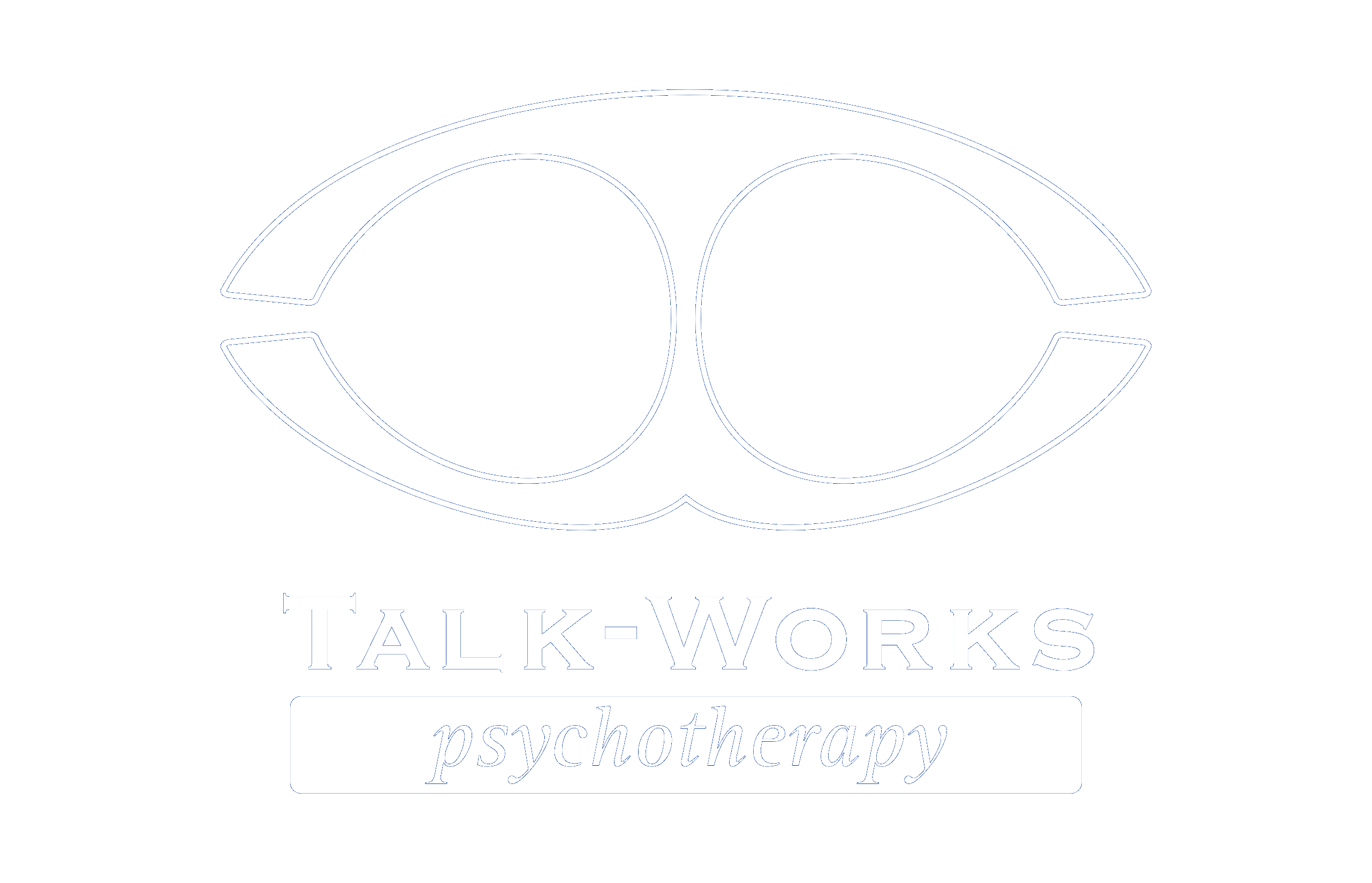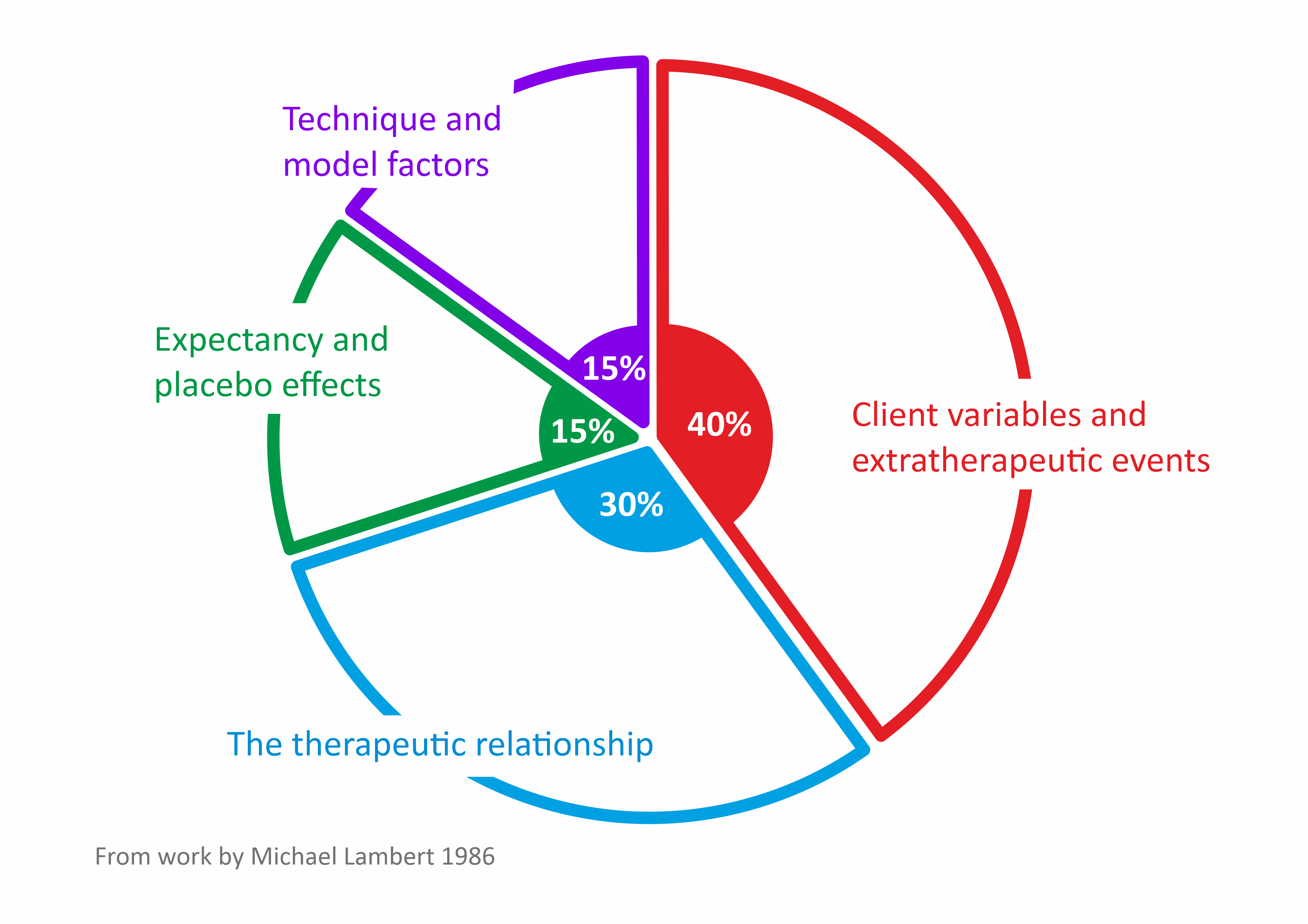What Works in Therapy
What are the most important factors that help therapy succeed
This is from research by Michael Lambert in 1986. Because people use a pie chart to present the data it’s often called Lambert’s Pie. Lambert was trying to identify what works in therapy and since almost all therapies seem to work about as well as each other (much to the displeasure of therapists who spend years training in their chosen modality), perhaps some other factors are at play.
We often don’t know what has worked
The largest factor (40%) is called “client variables and extratherapeutic events”. This is something of a catch all term for “We don’t know”. Maybe the client gets a new job, a new partner or some problem gets resolved. Perhaps the decision to try therapy sets off an internal process that is healing in itself. The main point is that the client feels better and it’s not clear why. But this is great – we want clients to feel better even if we don’t know how it happened.
Do you like and trust your therapist?
The next largest factor in Lambert’s Pie (30%) is called “The therapeutic relationship”. It seems that how you get along and the alliance co-created with your therapist is really important. Although this may seem obvious it’s worth remebering when you select your therapist.
Do you believe that therapy works?
A 15% chunk of Labert’s Pie is taken up with “Expectancy and placebo effects”. What this means is that if you have confidence in the process, it is more likely to be successful. This must surely be enhanced if you trust your therapist.
How the therapist has been trained
Perhaps disappointingly to the therapist, all that training in a particular style of therapy (modality) only contributes 15% to Lambert’s Pie. This makes sense since almost all modalities appear to work about as well as each other.
I should say that this doesn’t mean the modality is not important, it’s just more important to the therapist than it is to the client.
So what can we conclude?
The largest factors within our control involve the therapeutic relationship so it makes sense to make that a priority. Choose a therapist you like and trust. It’s OK to move on if the alliance doesn’t feel right to you.


